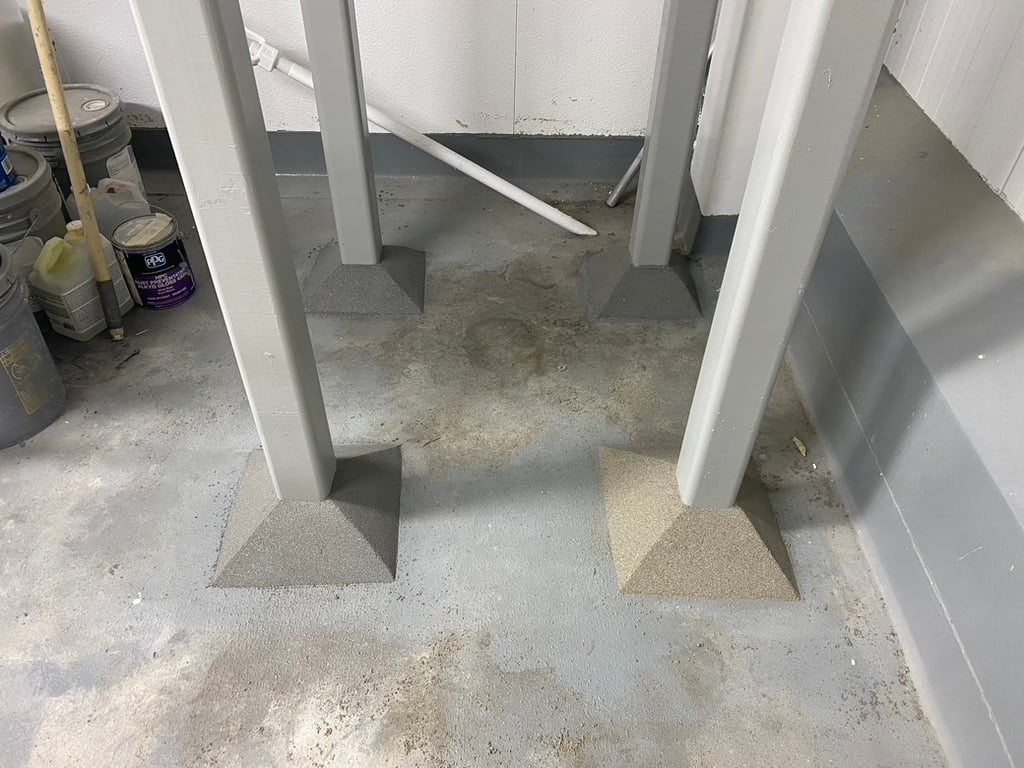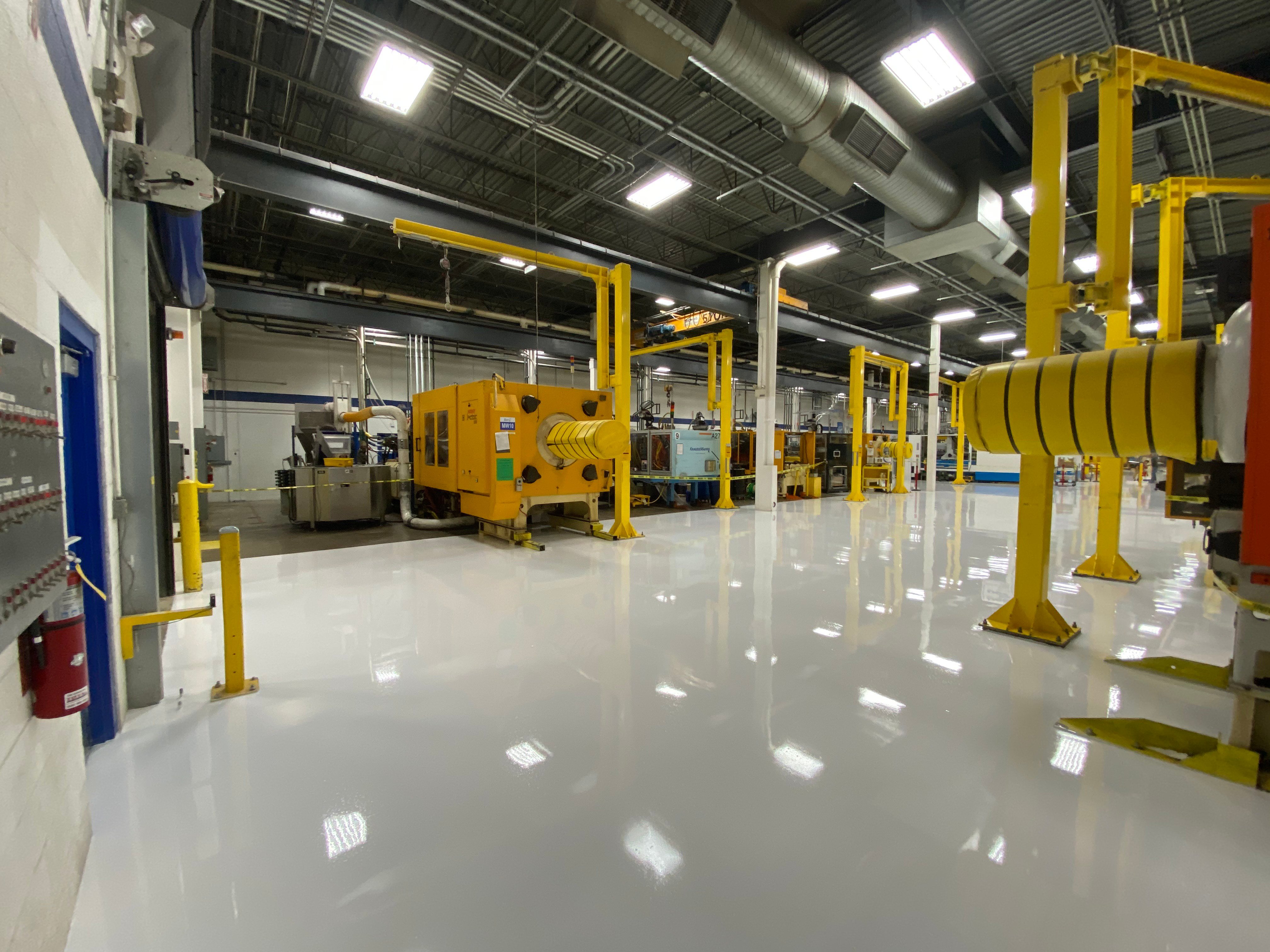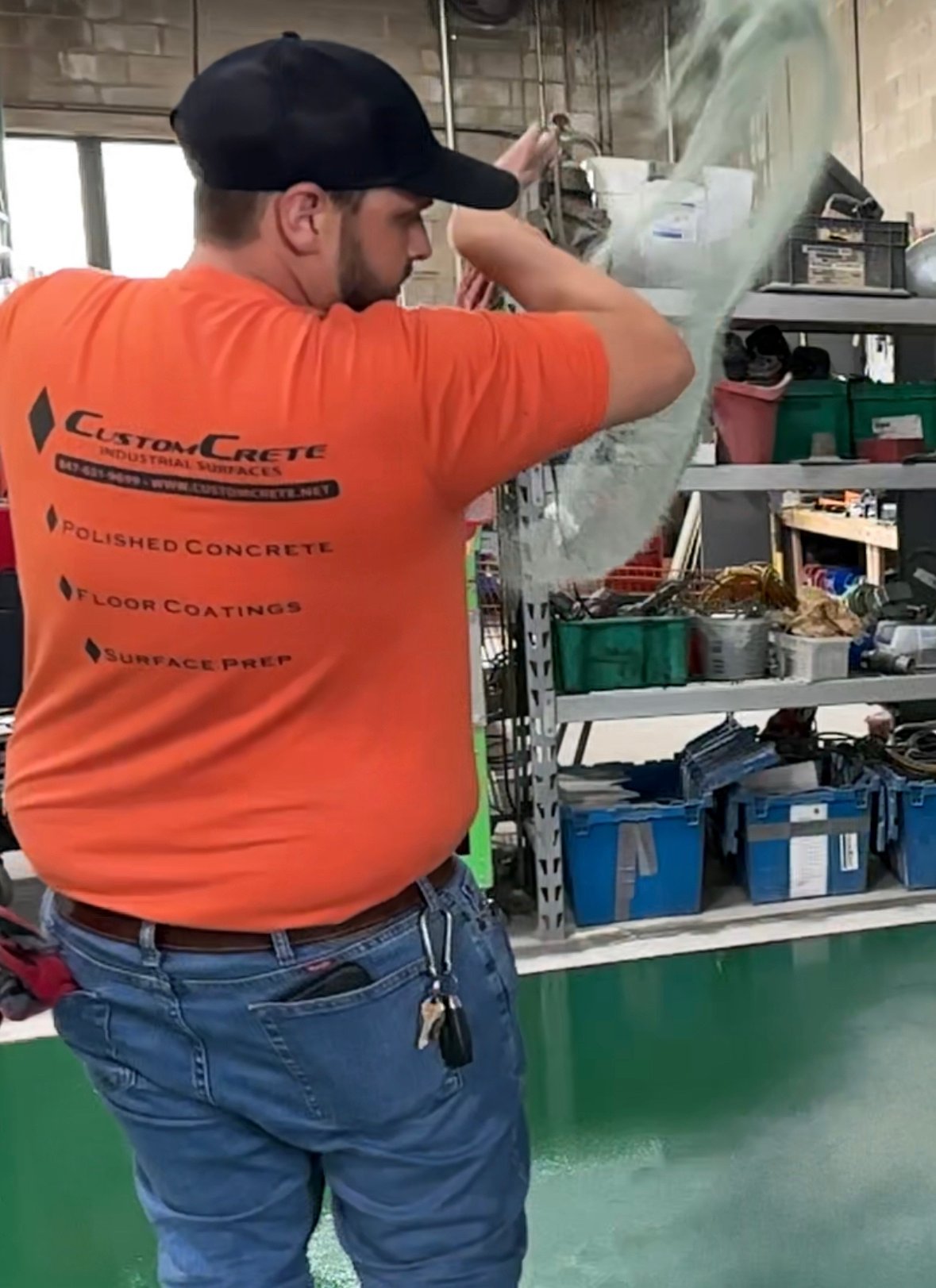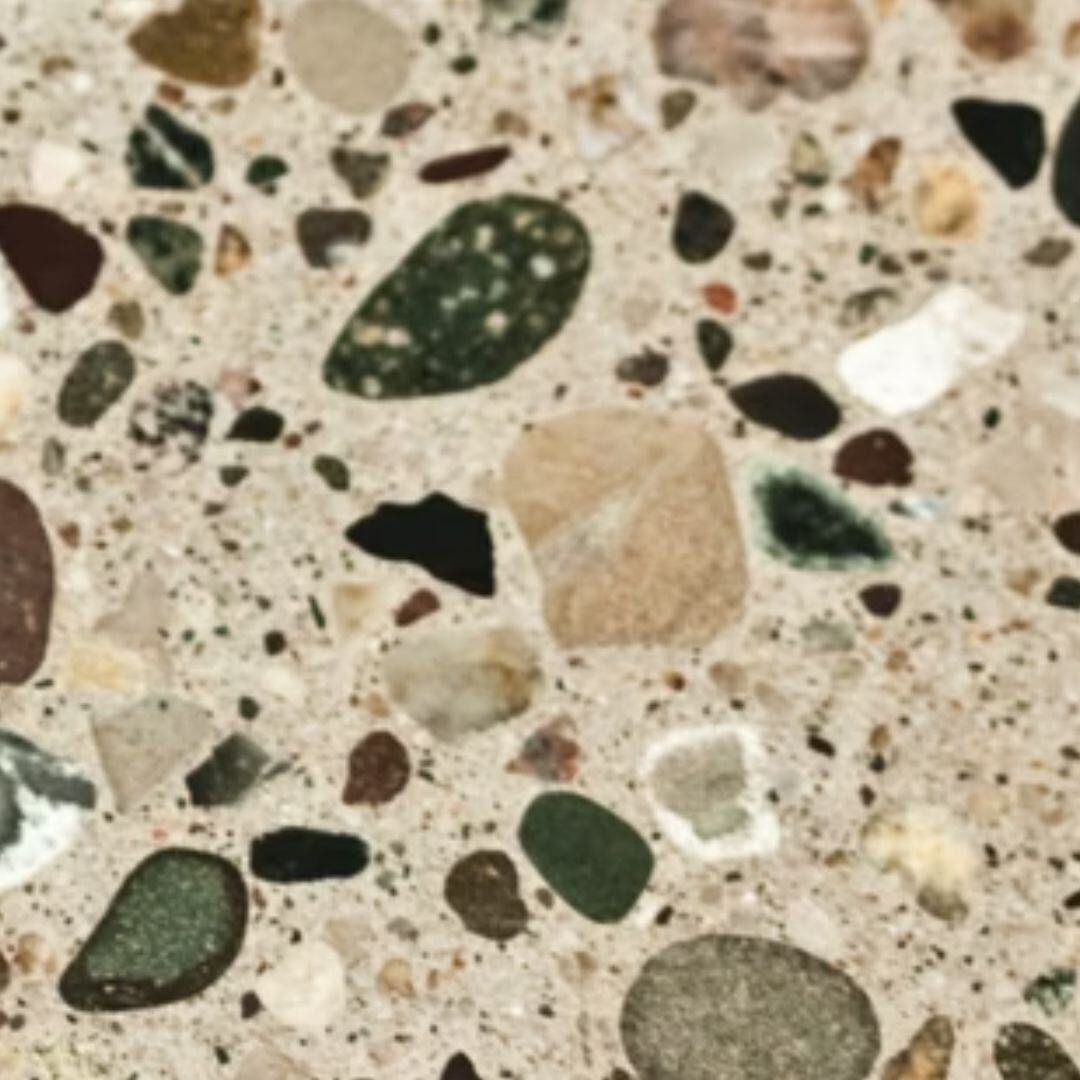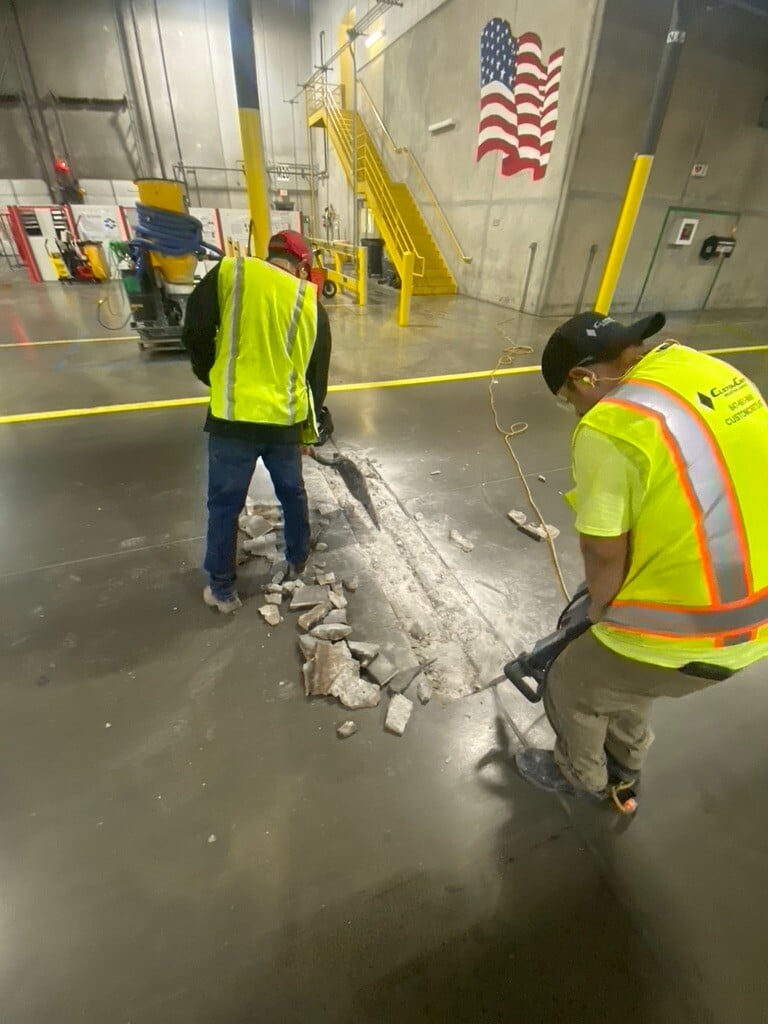
When it comes to flooring in large factories, durability, cost, and ease of maintenance are top priorities. Concrete floors have long been a staple in industrial settings due to their strength and longevity—but like any material, they have their upsides and drawbacks.
If you're considering upgrading or installing a concrete floor in your manufacturing facility, this guide will help you weigh the pros and cons so you can make the best decision for your operation.
CustomCrete has worked with industrial facilities across the Chicago area to install, repair, and maintain concrete flooring that stands up to the most demanding environments. Here’s what we’ve learned about when concrete works best—and what you should consider before making the switch.
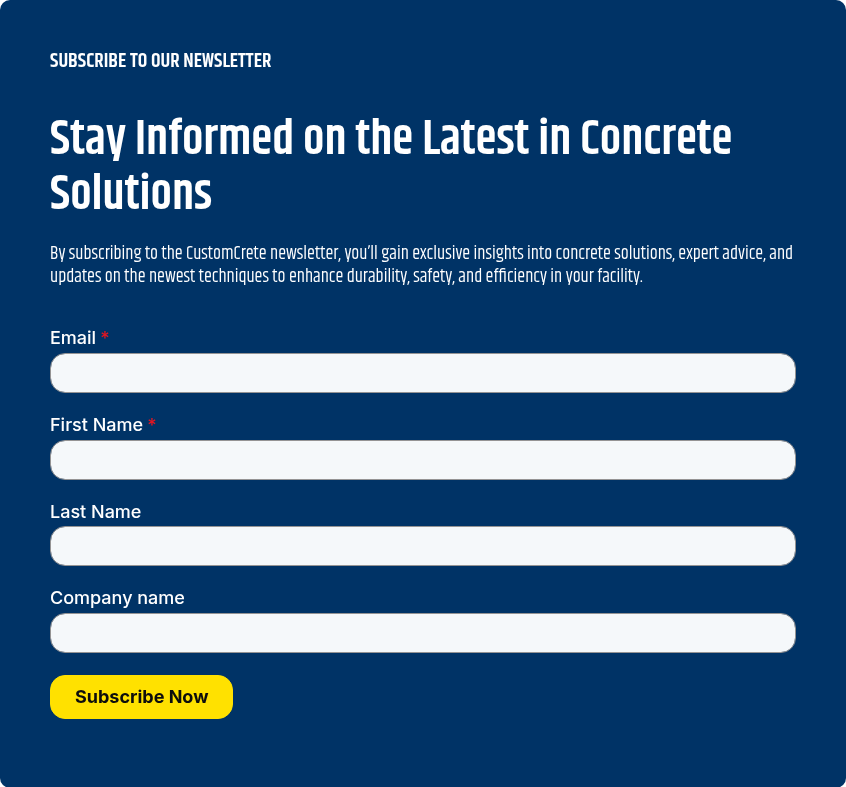
The Pros of Concrete Flooring in Large Factories
Concrete flooring offers several key benefits that make it a reliable and cost-effective choice for large industrial spaces. Here are the main advantages to consider:
1. Exceptional Durability
Concrete is one of the most durable flooring options available. It can withstand the constant movement of forklifts, heavy machinery, and high foot traffic without breaking down. When properly installed and sealed, a concrete floor can last for decades with minimal repair needs.
2. Low Maintenance
Unlike other flooring systems that require regular waxing, sealing, or replacement of tiles or panels, concrete floors require only routine cleaning. Dust mopping, occasional scrubbing, and resealing every few years (if applicable) are often all that’s needed to keep the floor looking and performing well.
3. Cost-Effective for Large Areas
Concrete flooring is one of the most economical options for large spaces. The materials are readily available, and the installation process is relatively straightforward—especially for new construction. Over time, its durability and low maintenance costs make it even more budget-friendly.
4. Improved Safety with Custom Finishes
Factory floors can be customized with slip-resistant textures, color-coded safety markings, or reflective coatings. These upgrades not only improve the safety of your operations but also help with traffic flow and compliance with OSHA guidelines.
5. Resistance to Chemicals and Heavy Loads
In factories that use oils, solvents, or other industrial materials, a sealed or coated concrete floor resists chemical damage better than many other flooring types. It also won’t deform under extreme weight or pressure.
6. Energy Efficiency and Light Reflection
Polished or coated concrete surfaces can reflect light, improving overall visibility inside the facility and reducing the need for excessive lighting—especially beneficial in large factory spaces.
The Cons of Concrete Flooring in Large Factories
While concrete flooring offers many benefits for factories, there are also some drawbacks to consider before committing to this solution. Here's what to watch out for:
1. Hard Underfoot and Fatiguing for Workers
Concrete is unforgiving, which can lead to fatigue or discomfort for workers who spend long hours standing or walking. Anti-fatigue mats or ergonomic flooring zones may be needed to offset this issue.
2. Potential for Cracking
All concrete will eventually crack. While most cracks are cosmetic or minor, improper installation, shifting subbases, or extreme temperature fluctuations can lead to more severe issues. Regular inspections and joint filling help mitigate these risks.
3. Cold Surface in Winter
In colder climates like Chicago, concrete floors can feel cold underfoot during the winter months. While this may not impact machinery, it can affect comfort and may require additional heating considerations or insulation.
4. Moisture Sensitivity Without Proper Sealing
Concrete is porous. Without the right sealant or vapor barrier, it can absorb moisture from the ground below, which may lead to damage or affect indoor air quality. Proper installation with moisture mitigation products is key.
5. Installation Time and Disruption
Installing or resurfacing a concrete floor can be time-consuming, particularly for large areas. Cure times, surface prep, and coating applications all add to the project timeline. Planning around production schedules is critical.
Is Concrete Right for Your Factory?
Here are a few questions to help guide your decision:
- Does your facility rely on heavy equipment or continuous movement?
- Is longevity more important than aesthetics?
- Can you accommodate short-term installation downtime for long-term gains?
- Are you looking for a low-maintenance, high-performance solution?
If you answered yes to most of these, a concrete floor may be the right investment for your factory.

Final Thoughts
Concrete flooring offers significant advantages for large factories—from superior strength and affordability to low maintenance and safety features. However, it’s important to consider its limitations, including potential worker fatigue, cracking, or moisture issues.
With proper installation, sealing, and maintenance, a concrete floor can become one of your facility’s most valuable assets. If you're considering concrete for your factory, consulting with an experienced contractor can help you assess your specific needs and avoid common pitfalls.
Want expert guidance on your next factory flooring project? Read our next blog on “Epoxy vs. Acrylic Flooring for Industrial Spaces” to understand what finish is best for your facility.
Topics:


